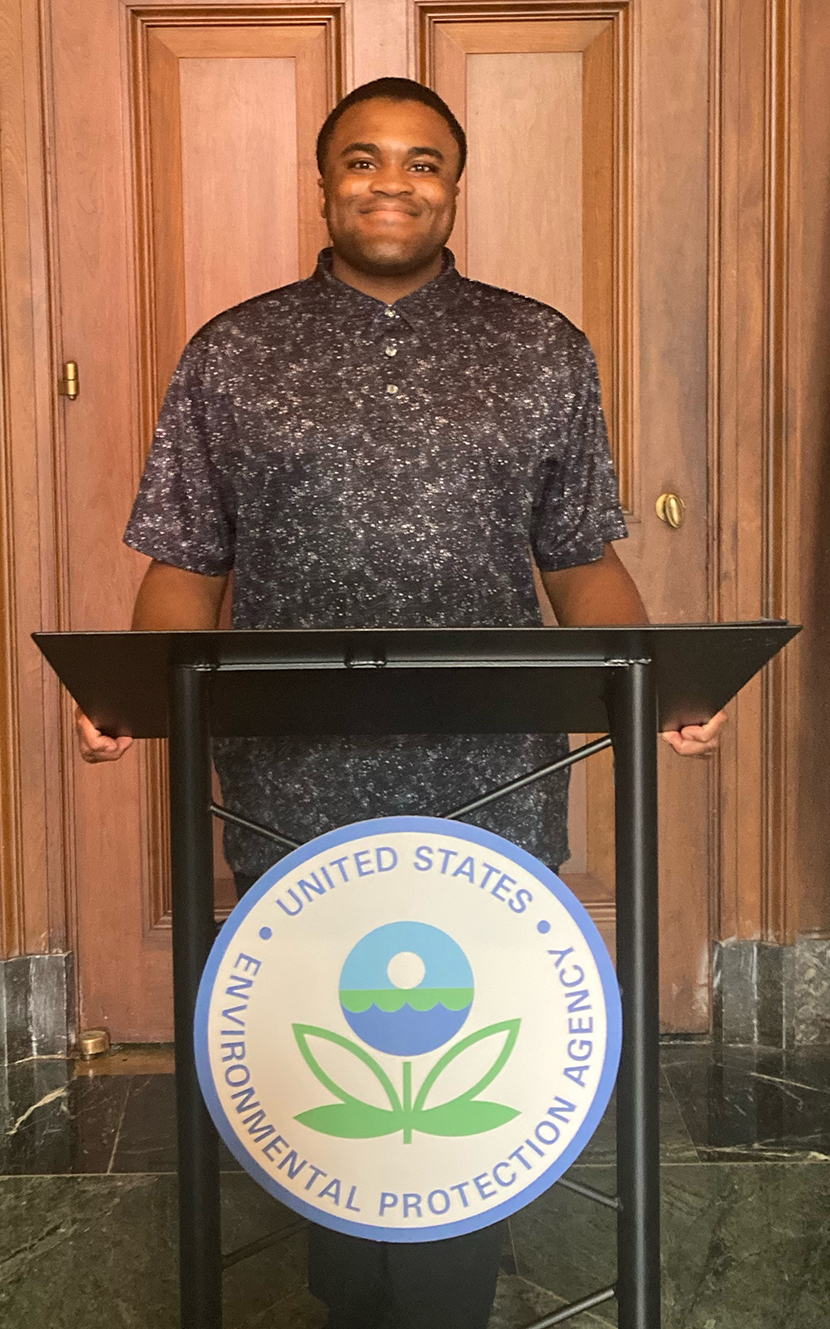
MAJORS AND MINORS
- Anthropology and Environmental Studies Major
- Museum, Field, and Community Education Minor
EXPERIENTIAL LEARNING
- Internship with the Environmental Protection Agency’s Office of Tribal and International Affairs
- Libby and Douglas Cater Society of Junior Fellows
EXTRACURRICULAR ACTIVITIES
- Musicians Union
- InterVarsity Christian Fellowship
- “From my anthropology classes, I’ve learned how human experience differs from culture to culture, and even within each culture. From environmental classes, I’ve learned more about what we can do to protect the environment and the people. From my museum education courses and experiences, I’ve learned how important it is to craft the educational experience based on the audience, environment, and intention, to make the greatest impact. The combination of all three has given me the foundation to do this work.”

Studying Environmental Health and Justice
Xavier Smalls '25
Abingdon, MarylandMAJORS AND MINORS
- Anthropology and Environmental Studies Major
- Museum, Field, and Community Education Minor
EXPERIENTIAL LEARNING
- Libby and Douglas Cater Society of Junior Fellows
EXTRACURRICULAR ACTIVITIES
- Musicians Union
- InterVarsity Christian Fellowship
- “From my anthropology classes, I’ve learned how human experience differs from culture to culture, and even within each culture. From environmental classes, I’ve learned more about what we can do to protect the environment and the people. From my museum education courses and experiences, I’ve learned how important it is to craft the educational experience based on the audience, environment, and intention, to make the greatest impact. The combination of all three has given me the foundation to do this work.”
"I've come to be interested in the nexus between culture and environmental pollution
or injustices,” Smalls said. "I feel like more work is necessary for underrepresented
communities.”
Smalls used a grant from the Libby and Douglas Cater Society of Junior Fellows to travel to Cuba and research food insecurity during his junior year, then undertook an internship with the Environmental Protection Agency's Office of Tribal and International Affairs the following summer.
At the EPA, Smalls researched the effects of pesticide exposure, air pollution, climate change, COVID-19, and other environmental health issues on native communities, on their ability to pass on their culture, and especially, on the health of children, who are most affected by environmental health factors. Smalls was struck by the relative lack of data on the topic, a revelation that host further motivated him to do more work on environmental justice.
Researching environmental impacts on children's health and creating informational materials to share their findings with tribes and the public allowed Smalls to join all of his interests.
“From my anthropology classes, I've learned how human experience differs from culture to culture, and even within each culture. From environmental classes, I've learned more about what we can do to protect the environment and the people,” Smalls said. “From my museum education courses and experiences, I've learned how important it is to craft the educational experience based on the audience, environment, and intention, to make the greatest impact. The combination of all three has given me the foundation to do this work.”